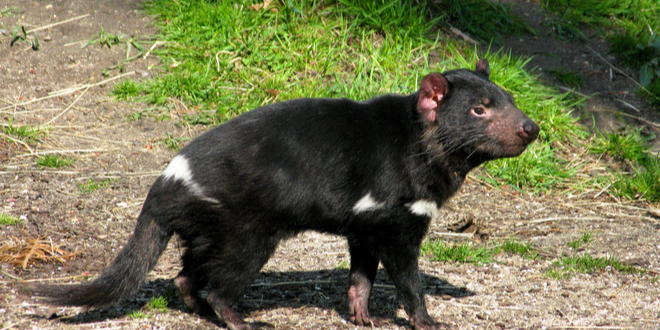Nobody and nothing likes the idea of being forgotten when they pass away – and that is true not only for people but also for natural species. When these disappear, they go extinct twice – one time when the last one stops breathing and a second time when the collective memory about the species disappears.
We live in an age of mass extinction, with biological extinctions frequent despite efforts of zoos and predominantly caused by various human actions. But, in tandem with this process and sometimes in advance of it, the loss of species from our collective memory and attention can occur, with their disappearance from our societies, cultures, and discourses – a phenomenon we refer to as societal extinction.
This process is especially striking for species that are already extinct, rare or in other ways isolated from society. Human interactions and experiences with such species can disappear – to the point of being collectively forgotten. Societal extinction represents a challenge for the management and conservation of biodiversity, as public awareness of a species is key for conservation actions.
In a paper, published recently under the title “Societal Extinction of Species” in the journal Trends in Ecology & Evolution, an international and interdisciplinary group of scientists that included Israelis explored the phenomenon of societal extinction. They found that whether a species will become societally extinct depends on many factors, including its charisma, how important it is for society, including its symbolic or cultural values, whether and how long ago it went extinct, and how distant and isolated its range is from human settlements and activities.
Societal extinction occurs not only in extinct species, but also in extant species, often due to different social or cultural changes – for example through the urbanization and modernization of society that can radically change our relationship with nature, and lead to the collective loss of memory. For example, replacement of traditional herbal medicine by modern medicine in Europe is believed to have degraded general knowledge of many medicinal plants.
As more and more species are becoming threatened, rare or extinct, they also become isolated from people. This leads to the extinction of experience – the progressive loss of our daily interactions with nature. As time passes, such species may fully fade from people’s memory.
For example, studies conducted among communities in southwestern China and Indigenous people in Bolivia have shown loss of local knowledge and memory of extinct bird species. “Such loss of memory got to the point where people were unable to even name those species, and didn’t remember what those species looked like, or their songs,” said Dr. Uri Roll from Ben-Gurion University (BGU) of the Negev in Beersheba, who co-authored the study. “Similarly, the extinct Japanese wolf named okami has only a few specimens that can be found in museums nowadays, and this challenges memory of the species within Japanese society.”
The opposite can also occur, however. “Species can also remain collectively known and salient after they become extinct, or even become more popular,” added Ricardo Correia, researcher at the University of Helsinki who was another co-author of the study. “However, our awareness and memory of such species gradually becomes transformed and often becomes inaccurate, stylized or simplified and disassociated from the actual species,”
For example, one study showed that, after the Spix’s macaw became extinct in the wild, children from local communities within its former range incorrectly believed that this species resided in Rio de Janeiro because of its appearance in the animated movie Rio.
“It is important to note that the majority of species actually cannot become societally extinct, simply because they never had a societal presence to begin with,” asserted Ivan Jariæ, lead author of the study and researcher at the Biology Centre of the Czech Academy of Sciences.
“This is common in uncharismatic, small, cryptic or inaccessible species, especially among invertebrates, plants, fungi and microorganisms, many of which are not yet formally described by scientists or known by humankind. They suffer declines and extinctions in silence, unseen by the people and societies.”
The phenomenon of societal extinctions can considerably challenge efforts aimed at conservation of biodiversity, because it can affect our perception of the environment and expectations of its natural state, such as what is normal or healthy. It can produce false perceptions of the severity of threats to biodiversity and true extinction rates and diminish public support for conservation and restoration efforts.
“Societal extinction can reduce our will to pursue ambitious conservation goals. For example, it could reduce public support for rewilding efforts, especially if such species are no longer present in our memory as natural parts of the ecosystem,” said Jariæ, who stressed the importance of the findings. As key measures to counteract societal extinction, the authors emphasized the importance of targeted, long-term marketing campaigns and conservation education to revive, improve and maintain memory of societally extinct species.
The shortcode is missing a valid Donation Form ID attribute.




